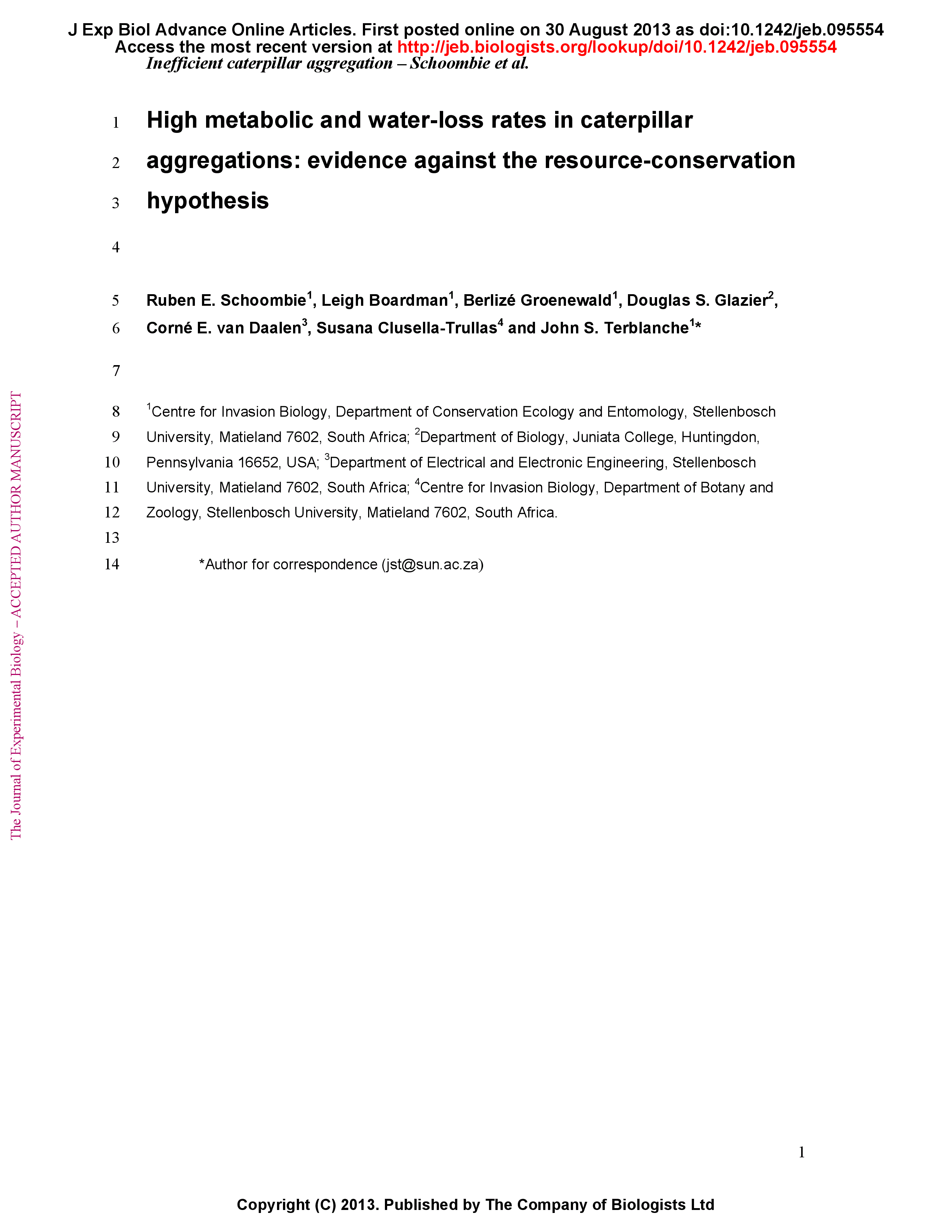Summary
Several reasons have been proposed for animal aggregation, including energy or water conservation. However, the latter physiological hypotheses have not been well investigated. Here, we report the effects of aggregation on metabolic (VCO2) and evaporative water-loss rates (VH2O) of the gregarious caterpillar Eutricha capensis, by comparing individuals and groups of individuals (n=10-100). Contrary to findings from previous physiological studies, we did not find an advantage to aggregation: unexpectedly, VCO2 and VH2O did not decrease with increasing group size. VCO2 and VH2O generally remained constant or increased in larger groups relative to individuals. The amount of water lost per unit of CO2 exchanged (VH2O:VCO2 ratio) showed a marked increase in grouped caterpillars, particularly in larger groups. Other benefits of aggregation (e.g. reduced predation or increased growth rates) likely outweigh these potential costs, because individuals of E. capensis aggregate voluntarily despite no obvious energetic or hygric advantage, and other potentially confounding group effects (e.g. increased thermoregulatory advantage or whole-animal activity) are inconsequential. The results of this study provide an important exception to physiological studies reporting enhanced energy or water conservation in animal groups.








